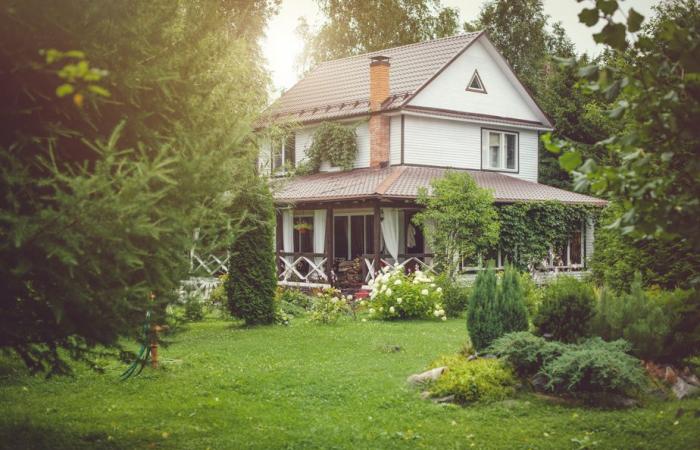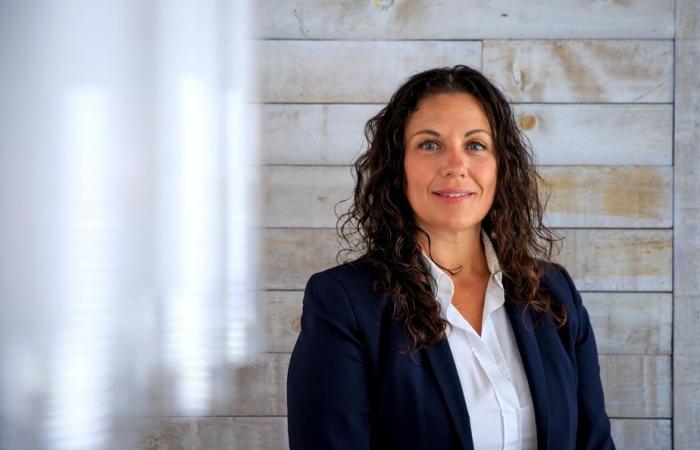Is it possible to retire with a large mortgage? Or should you resign yourself to selling your house so you can stop working?
Published at 1:31 a.m.
Updated at 6:00 a.m.
The situation
Sylvie* and Pierre* had intended to work until they were 65, but age is catching up with them faster than expected, they observe. The couple is only 60 and already, health problems are starting to bother them. There is also the four hours a day of travel to get to work that Pierre is finding increasingly difficult.
The reason the couple lives so far from Pierre’s workplace is because of the haven of peace they found before the pandemic. A pretty house in a quiet and safe area.
“My husband and I would like to retire in two years, but I don’t think that’s really going to be possible,” Sylvie writes. “The big bugbear is our $316,000 mortgage, which is high because of consolidated debt, bad decisions and because we were poorly advised by our real estate broker,” she continues. “All of this means that we find ourselves in this really unfortunate position at our age.”
Pierre will be entitled to a pension from the Government and Public Bodies Employee Pension Plan (RREGOP) next summer, but the amount will not be large and he has no investments, the couple said.
Sylvie has RRSPs and a retirement savings plan with her employer. She and her employer each deposit $247.50 into the account every two weeks, the equivalent of 13% of Sylvie’s salary.
“We desire with all our heart to keep our home, because it is our haven of peace. But we know that there is a price to pay for being well and having peace.”
Sylvie and Pierre want to avoid having to sell their house to move into a condo at all costs. But do they have a choice? The house is worth about $800,000.
“I was wondering if I could possibly take my investments to pay off the mortgage, but at that point, I would no longer have that money to compensate for my OAS and QPP.”
The couple’s current cost of living is $96,000, but they plan to reduce that to $60,000 in retirement.
The numbers
Rock
- Salary: $64,000
- Estimated QPP: $780 at age 62
- Retirement fund: $19,380 at age 62 and $12,060 at age 65
- RRSP: none
- TFSA: none
- Mortgage: $316,000
- House value: $800,000
Sylvie
- Salary: $99,000
- Estimated QPP: $900 at age 60 / $1,317 at age 65
- RRSP: $230,700
- RRSP with employer: $165,000
- TFSA: none
The analysis
Chantal Matos, financial planner, certified investment manager and private manager at Desjardins Private Management, created several scenarios to answer the couple’s main question: is it possible to keep their haven of peace?
PHOTO ALAIN ROBERGE, LA PRESSE ARCHIVES
Chantal Matos, financial planner, certified investment manager and private manager at Desjardins Private Management
“I tried several approaches, but we can’t work miracles. It’s $25,000 per year in mortgage that they pay with their rate at 4.41%. That’s a lot of money,” says Chantal Matos.
When they renew their mortgage in 2026, rates should be around 3.5%, based on the average historical rate over the past 30 years, the financial planner estimates. If we take advantage of this rate decrease, Sylvie and Pierre would have payments of $450 per week instead of $480. The annual savings are not miraculous. They are $1,589 and they will still have 17 years to pay.
Should they extend the loan to 25 years? They would then pay $345 per week, which is $17,940 per year.
“That’s not my recommendation,” the expert said, “because they’re going to pay more interest and when they retire, their income is going to drop.”
To maintain their safe haven, the only option that works is this, according to the financial planner, and it’s not perfect.
A non-miraculous solution
First, if Pierre leaves his current job at age 62 and starts drawing his RREGOP pension, he will have to find part-time work close to home. He must make up for the shortfall in income for the cost of living until age 65, argues the planner.
“Since they don’t have a lot of money, I would tell Pierre to wait until he’s 65 to take his pension from the Quebec Pension Plan (QPP). It will be about $11,045 instead of $9,360 at 62.”
Pierre will have a pension of $19,380 until age 65, and after that it will be reduced to $12,600 because it is coordinated with the Quebec Pension Plan (QPP) pension. He will also be able to count on the Old Age Security (OAS) pension.
If they want to keep their home, Sylvie’s RRSPs must cover the mortgage payments until they are fully repaid. To do this, she will have to work until she is 65 to accumulate RRSPs, since she has no retirement funds, explains Chantal Matos.
Sylvie has $395,000. If she contributes $247.50 every two weeks, her employer contributes the same amount, and both her personal and employer RRSPs earn 3.5%, Sylvie will have $540,000 at age 65.
“I calculated the withdrawal from her RRSP, which will become a RRIF over 14 years, since there will be 14 years of mortgage payments remaining at age 65,” explains Chantal Matos.
From age 65 to 79, she will pay out $45,000 per year and will have about $37,800 left net, based on the couple’s average tax rate, the planner calculates. This will cover the mortgage payment and the cost of living.
Sylvie should begin withdrawing her Quebec and Canada pensions at age 65 or later. Starting at age 80, the QPP and OAS will provide her with an income of approximately $24,000 per year.
Chantal Matos indicates that a tax credit for career extension in Quebec is offered to people aged 60. In Canada, a sum is granted (maximum $2,000) to persons aged 65 and over when they declare eligible pension, retirement or annuity income. Quebec also pays a maximum non-refundable credit of $450.
When the mortgage is paid off, there will be no RRSP left and the cost of living for both members of the couple will have to be $4,000 per month maximum to cover all their expenses, since their joint gross income will be approximately $57,700.
Will they be able to afford the maintenance costs of an $800,000 house and the unexpected? asks the planner.
By then, if they don’t reach their budget, the house could be sold at any time. For now, they have a solution to live in their haven of peace for as long as possible, concludes Chantal Matos.
*Although the case highlighted in this section is real, the first names used are fictitious.







